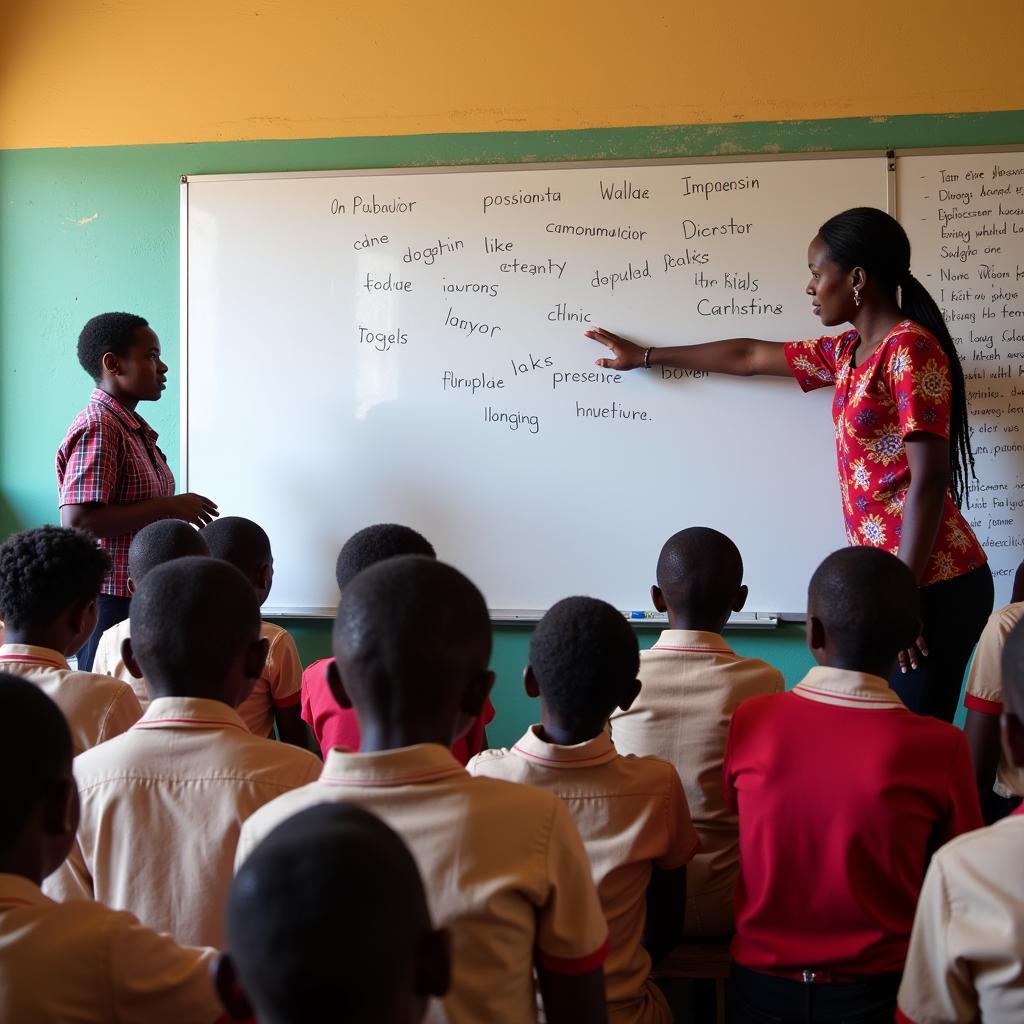African Countries with Good English: Exploring Linguistic Diversity
English proficiency is increasingly important in our interconnected world, and Africa is no exception. While the continent boasts a rich tapestry of over 2,000 languages, English serves as an official language in many African countries, a legacy of colonial history. This linguistic heritage has paved the way for high levels of English proficiency in several nations, making them attractive destinations for education, business, and tourism.
 African Students Learning English
African Students Learning English
Unveiling the Factors Behind English Proficiency
The level of English spoken in African countries is influenced by a complex interplay of historical, political, and socioeconomic factors. Countries where English is the primary language of instruction in schools, used in government administration, and widely spoken in media tend to have a higher proportion of English speakers.
 African Business Professionals Meeting
African Business Professionals Meeting
Furthermore, economic ties with English-speaking countries, exposure to English through popular culture, and government initiatives promoting English language learning contribute significantly to a nation’s overall English proficiency.
Top African Countries with Notable English Proficiency
While many African countries boast significant English-speaking populations, some stand out:
1. South Africa
As a melting pot of cultures and languages, South Africa recognizes eleven official languages, including English. English plays a dominant role in education, commerce, and government, leading to a high level of English fluency among its diverse population.
 South African Cityscape
South African Cityscape
2. Kenya
English serves as the official language of Kenya alongside Swahili. With a strong emphasis on English-medium education and its prevalence in media and government, Kenya has cultivated a population comfortable communicating effectively in English.
3. Nigeria
As Africa’s most populous nation, Nigeria boasts a significant English-speaking population. English is the official language and enjoys widespread use in education, administration, and commerce, contributing to Nigeria’s reputation for a high level of English proficiency.
4. Ghana
Known for its peaceful democracy and stable economy, Ghana also claims a high literacy rate in English. English serves as the official language and is deeply integrated into the education system, contributing to widespread English fluency.
5. Rwanda
In a remarkable display of linguistic transformation, Rwanda adopted English as an official language in 2008. This strategic decision was aimed at fostering international partnerships and attracting foreign investment. The proactive approach to English language education has resulted in a rapidly growing English-speaking population.
The Significance of English Proficiency in Africa
English proficiency unlocks a world of opportunities for African nations and their people. It facilitates international trade and investment, promotes cross-cultural exchange, and enhances access to global knowledge and technology.
Moreover, proficiency in English empowers individuals with improved employment prospects, greater access to higher education, and increased social mobility.
Conclusion: Embracing Linguistic Diversity While Fostering English Proficiency
Africa’s linguistic landscape is rich and diverse, and the presence of English adds another layer to this intricate tapestry. While preserving and celebrating indigenous languages remains paramount, embracing English proficiency serves as a strategic asset for African countries in an increasingly globalized world. By continuing to invest in language education and create an enabling environment for language learning, African nations can leverage their linguistic diversity as a powerful tool for growth and development.

